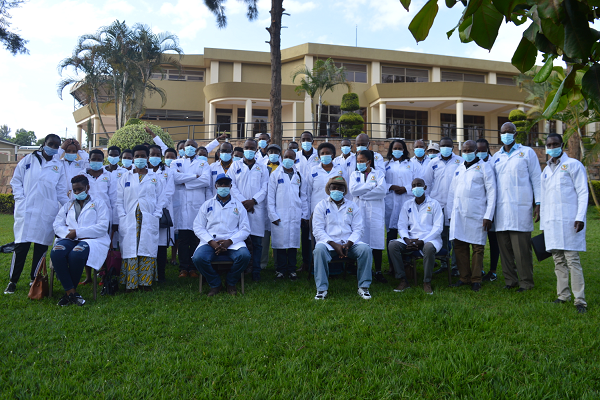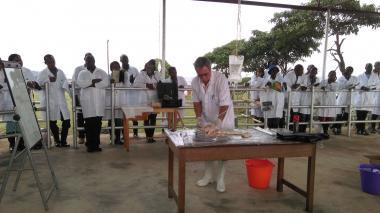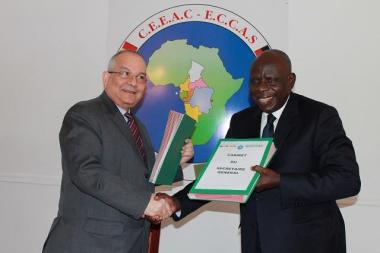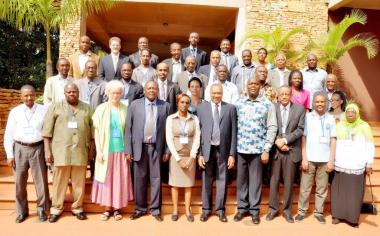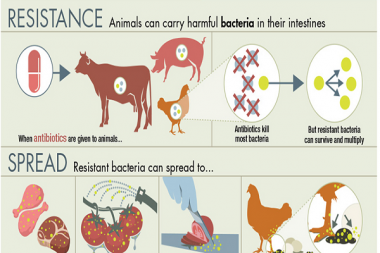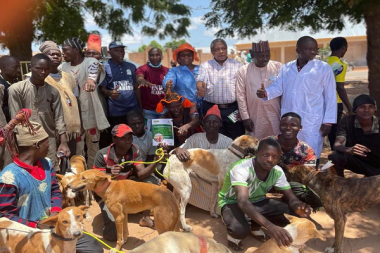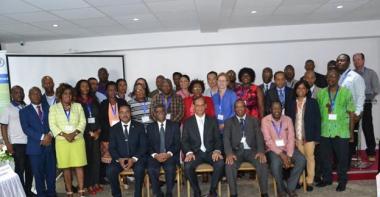Training of Trainers (Tot) Workshop on Utilization of Innovations and Technologies for Improved Production and Value Addition on the Dairy Value Chain in Rwanda
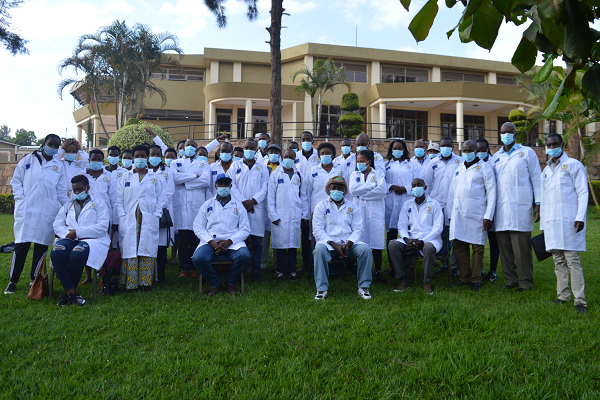
17th – 21st May 2021
Kigali, Rwanda
Press release
The Rwandan Dairy Value Chain can benefit from harnessing innovative and cost-efficient technologies to support structural transformations to deliver a wide range of outcomes, including a boost in milk production, marketing, improved food safety, and improved competitiveness. For instance, the use of treated crops residues in dairy feeding has shown to promote growth, increased production, productivity, increased milk production as well as reproductive performance. Participants have been taught proven dairy production best practices in hygienic milk production, collection, transportation, storage and dispensing throughout the training. These technologies have been critical towards the streamlining of the entire Rwandan dairy industry and has been taken as key to the reduction of informal milk marketing.
In line with this, a Training of Trainers (ToT) Workshop on Utilization of Innovations and Technologies for Improved production and Value Addition on the Dairy Value Chain in Rwanda was held at the Nobleza Hotel, Kicukiro District in the city of Kigali from 17th to 21st May 2021. The workshop was organised by the African Union- Interafrican Bureau for Animal Resources (AU-IBAR) under its Live2Africa Project with funding from the European Union (EU) and was attended by forty (40) participants drawn from the entire dairy value chain in Rwanda and related stakeholders. The objective of the workshop was to identify practical innovative technologies in the dairy value chain and facilitate their adoption and uptake by stakeholders in Rwanda. Specifically, it exposed participants to modern appropriate, simple, cost-effective, and gender-sensitive technologies and innovations. It capacitated them to apply these in dairy production and other segments of the dairy value chain.
Key activities during the training included presentations, discussion and farm/industrial visits on utilization of technologies for value-addition and feed formulation and management in the dairy value chain in Rwanda. An important outcome of the workshop included establishing the road map for the ToT to replicate what they have learned to their fellow members of the dairy clusters.
Additionally, workshop participants embarked on a one-day field visit to one Dairy processing plant in Nyabihu district in the western province (Mukamira Milk Processing Industry) and One advanced dairy primary cooperative (IAKIB) in the Northern Province.
Recommendations made at the end of the workshop included:
1. The Rwanda National Dairy Platform (RNDP) to continue to provide capacity enhancement to dairy value chain operators;
2. Dairy Value chain operators to be involved in the elimination of informal milk traders upon enforcement of the ministerial order that provides the regulations on milk marketing through the collection, transportation, storage and marketing;
3. To link operators in the dairy value chain with loaning financial institutions and commercial banks;
4. RNDP to continue to provide advocacy for the formulation and putting in place dairy industry enhancing policies and regulations;
5. Dairy farmers to continue receiving feeds and feeding technologies on a regular basis;
6. The RNDP in collaboration with the government and private sector services providers to provide bovine artificial insemination services to farmers in need for breeding of their dairy herds;
7. The government to provide support to dairy farmers to access small loans, especially for smallholder dairy farmers who have little resources in order to be able to run their farming activities for profit;
8. RNDP to hold discussions with FDA and RSB aimed at facilitating SME’s in dairy to access products standards in order to compete in the regional dairy markets;
9. The participants highlighted the need for the government (RAB/MINAGRI) to strengthen research in dairy feeds and feeding and identification of cost-effective feeds for dairy cattle;
10. Equipment and utensils used in dairy are expensive, participants urged the government to provided grants or shared costs for such important materials in the sector of processing and handling of milk;
11. Regionally, participants have shown interest in study tours aimed at increasing awareness and capturing the experiences seen in other parts of the region;
12. Above all, participants have urged the government to strengthen public-private partnerships/dialogues in a bid to improve the sector and competitiveness in doing businesses;
13. Participants have agreed to form a coordination mechanism that will keep informing them on activities and events happening across the dairy value chain through the normal channel of communication within RNDP structures as well as media groups such as WhatsApp and email;
14. Participants thanked the government of Rwanda for having supported the dairy sector through ONE COW PER POOR FAMILY PROGRAM and, in particular The Rwanda Dairy Development Project that have tremendously provided interventions that led to increased dairy herd and milk production across the country;
15. Lastly but not least, Participants expressed their sincere appreciation to the AU-IBAR and the European Union (EU) for organising and sponsoring such an important workshop, respectively, as it provided them an opportunity to be educated on innovative technologies in the dairy value chain, which will make them more efficient in their operations and enhance strong collaboration between stakeholder institutions.
